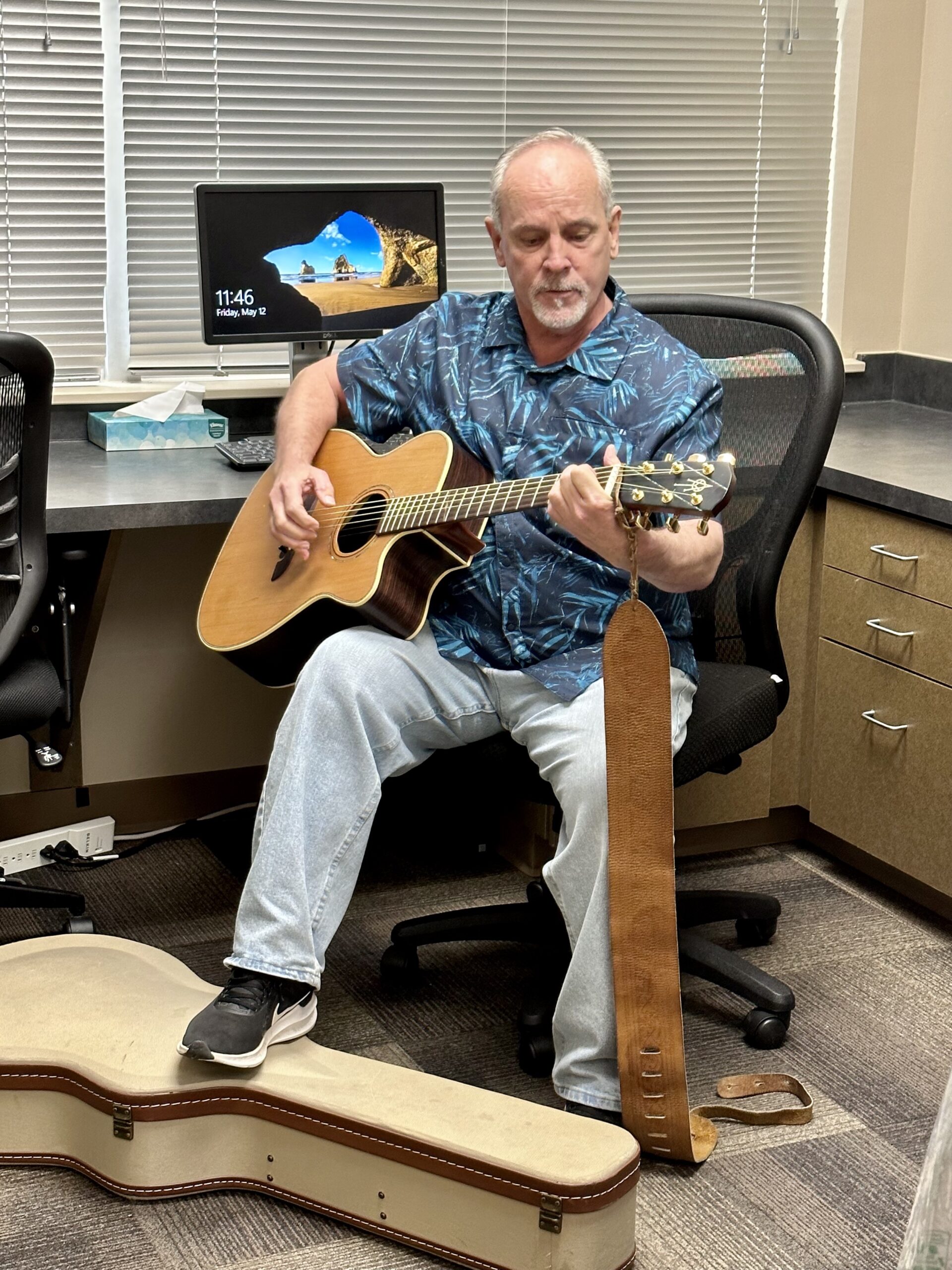While stroke is a serious and potentially deadly condition, a Central Texas man is using humor and songwriting as part of his healing process.
On November 9, 2021, Chuck King was working as an insurance agent and speaking to one of his coworkers, when suddenly his right side went numb. Knowing something felt off, he had his friend call an ambulance. Once he arrived at the hospital, he was told he had a mini-stroke.
A stroke occurs when a blood clot blocks the flow of blood and oxygen to the brain and can cause permanent damage or sometimes be life-threatening.
It is considered to be a mini-stroke when the blockage is just temporary with symptoms coming and going very quickly resulting in far less damage, if any. A mini-stroke is frequently referred to as a transient ischemic attack (TIA)and could be a warning sign that another stroke could soon follow.
As May is American Stroke Month, our team of board-certified cardiothoracic and vascular specialists at CTVS is grateful to Chuck for sharing his story.
We are urging others to become familiar with the signs of stroke and reminding all of the crucial nature in which you should seek medical attention to limit lasting brain damage, or worse.
Common signs of a stroke (and action to take) can be remembered by thinking F.A.S.T.:
- F = Face Drooping: does one side of the face droop or is it numb? Can the person smile?
- A = Arm Weakness: is one arm weak or numb and can they lift both at the same time?
- S = Speech Difficulty: has speech become suddenly slurred?
- T = Time to call 911!
Once Chuck was admitted to the hospital after his mini-stroke, doctors examined his heart and arteries to check for signs of additional blockage. They found that the carotid artery in his heart was blocked with plaque and a piece of that had broken off and traveled to his brain.
To clear up the plaque and prevent future blockage, Chuck underwent open heart surgery and a procedure known as CABG (coronary artery bypass grafting). During bypass surgery, healthy blood vessels from elsewhere in the body are connected to the heart to facilitate blood flow while going around (or bypassing) the damaged artery.
CTVS board-certified cardiothoracic surgeon Dr. Chance Conner performed Chuck’s surgery and shared that he had multiple blocked coronary arteries that were discovered as a result of his mini-stoke.
“His (heart) disease was severe and could not be treated with stents,” says Dr. Conner. “In order to safely undergo the surgery required for his stroke, he required CABG.”
After Chuck recovered from his bypass procedure, a subsequent surgery was performed by CTVS board-certified vascular surgeon Dr. Bradley Boone who implanted stents to help keep his arteries open and avoid any future blockage that could lead to another stroke.
Chuck wrote Green Gown Blues as a way to thank his surgeons, the hospital, and his family and friends for everything they did for him to keep him alive. And he used humor because as he says, “you can’t take life too seriously.”
Chuck has been singing and songwriting his entire life — first in a church choir, then as a church music director, and now as a hobby.
He says it’s important for people to listen to their bodies. “Don’t be stubborn. Go to the experts. They’re there to help.”
Knowing the warning signs of a very serious condition like stroke, such as one side of the body going numb like in Chuck’s case, is a big help too.
For questions about CABG or any of our cardiac, thoracic, or vascular services, please visit ctvstexas.com or call us at (512) 459-8753 to schedule an appointment.
Don’t forget to follow us on Facebook and Instagram and check our blog for regular updates.

